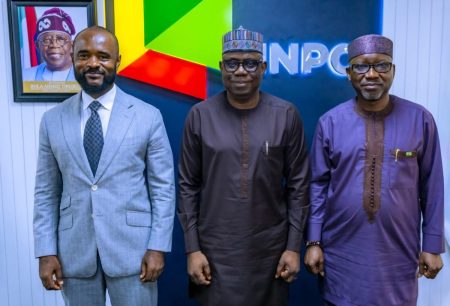`

09 August 2015, Sweetcrude, Port Harcourt – Nigeria is a federation comprising 36 states reproduced out of the three original regions created by the Richards Constitution of 1946. Although the regional system worked for the country, the politicians who took over from the colonial government contrived the political stratagem of creating more political entities, more to reduce the influence of their political foes and less to satisfy the yearnings of certain populations for political autonomy. From granting political autonomy to restive populations and whittling the political influence of political rivals, the trend naturally moved into a new yearning and a new sphere: the race to file a stake for the “federal allocation,” assured every state and local government recognised by the Constitution.
While the regional system subsisted, affairs of the federal or national or central government were run with taxes collected by its agents, incomes received from government services, earnings from government instruments and grants received from foreign governments or entities. The regions had 100% control over the resources in their domains but in 1969, precisely 10 years after the discovery of crude oil in the Ijaw hinterland, Yakubu Gowon’s Supreme Military Council, the bogey successor to another pretentious national legation that was neither voted nor invited to form a central government, enacted the Petroleum Act, 1969. The effect of the Act was to divest communities in the Eastern Region of their rights over crude oil deposits found in their soil and invest same on the national government, the group of men and women delegated by the regions to manage the affairs, such as diplomacy, currency, the armed forces, the police, et al, common to all of them. The enactment of the Petroleum Act was done in a time of war, a war that was being waged against the people of the very region that was the objects and victims of the enactment. It was clearly a seizure of the proprietary interests of a few people in the Nation for the benefit of the whole nation. The people were not consulted, their needs were discountenanced, their protests were ignored and their sufferings were neglected.
A law enacted by any legislature can only become legitimate where it is fair, equitable, applied universally, that is, to all equally and commands the obedience of the populace, especially, the folk immediately affected by its effects. The people of the Niger Delta affected by the Petroleum Act, excluding few communities in Imo and Abia states are ethnic minorities in Nigeria; compelled to make the sacrifice for the even and uniform development of territories in the Nigerian state, their deaths, sufferings, impoverishment, dehumanisation, environmental challenges and the collapse of their societies have actually funded corruption, greedy officials of the federal government, the federal government itself, states and all the 774 local governments created by the Constitution. In 1989, 20 years after the grand theft of the resources of the Niger Delta, the federal government rolled out the Mineral Resources Act in an attempt at balancing the equation. The joint effects of these enactments is that the delegates contributed by all the states in the federation to manage their common affairs now pretend to own and control oil, gas and mineral deposits found within Nigerian territory and fortified by the provisions of S. 162 of the 1999 Constitution, purports to share the proceeds from those resources on the bogus bases of size, need and national interest, subject only to a guaranty by S. 162 (2), to reserve at least 13% of the revenue for states from which the revenue was derived. The Petroleum Act grants the federal legation the power to grant concession and operational licenses; it also empowers the federal government to tax oil and gas operations and then by virtue of receiving income from those activities into its “federation account” as provided by S. 162(1), it plays the role of a monthly benefactor, distributing the income from 8 states in the federation to itself, 36 states, 774 local governments and one federal capital territory.
Where is the morality in calling upon the sacrifice in death, loss of homes, peace and occupations from a few people in 8 states, to fund folks who applied for statehood under the pretext that they had sufficient means to manage their affairs? What is the justification for such a law that is applied arbitrarily, operates arbitrarily and promotes a culture of arbitrariness? Where is the morality in a law that constitutes a theft to an impoverished Niger Delta and that has become the foundation and motivation for the agitation of the creation of states that are not viable? How evenly and uniformly have the states in Nigeria developed by virtue of the compulsory acquisition engendered by the Petroleum Act? Whereas the cold statistics show that less than ten of the existing states, funded largely by “federal allocation” are viable, the National Assembly has received more than twenty more applications for the creation of more states! What is the sense in enacting a law that overheats the polity to achieve what could have easily been actualised through the supervision of the exploration and exploitation processes, enforcement of international industry standards to oil and gas operations and taxation (up to 50% of oil gas operations, as in some countries). These are the roles the DPR, the Local Content Monitoring Board and the Federal Inland Revenue service could have played profitably for the federal government without the budgets of the Ministry of Petroleum Resources, the NNPC and all the uncountable inane business concerns that are funded with more than a half of the income that accrues to Nigeria through oil and gas operations.
Federalism as it is practiced in civilised democracies grants the federal government the power to supervise and tax the industry and its operations, the states the power to license companies or businesses that operate within their domain and communities the authority to grant concessions for assets within their territories. This system is just and fair as it is symmetrical to the operations of other industries operated in other states. The federal government does not own or run breweries or cigarettes manufacturing plants but sets limits for nicotine and alcohol applied to the products, restricts consumption and imposes taxes. The same applies to farms and agricultural produce. Would it not be absurd for the federal government to seize all the cattle, horses and goats originally belonging to the Fulani for the benefit of the Ijaw, Efik, Ibibio, Yoruba and Igbo, leaving the Fulani without occupation?
The Petroleum Act is an anomaly, an anachronism and an injustice of epic proportions. It has denied Nigerian states the sense of healthy competition which drives development, produced more states and local governments than we can manage, has nearly killed taxation and portends to redefine our loyalties needlessly along the lines of excluding from or including to its enjoyment. The peoples of the Niger Delta are no less protective of their proprietary interests over their oil wells than the Fulani are over their cattle; their isn’t the slightest difference between the two assets, both occurring naturally, roaming wild on the Sahel plains or gurgling free in the bowels of the Earth beneath the Niger Delta. That Abuja sharing jamboree must stop.



